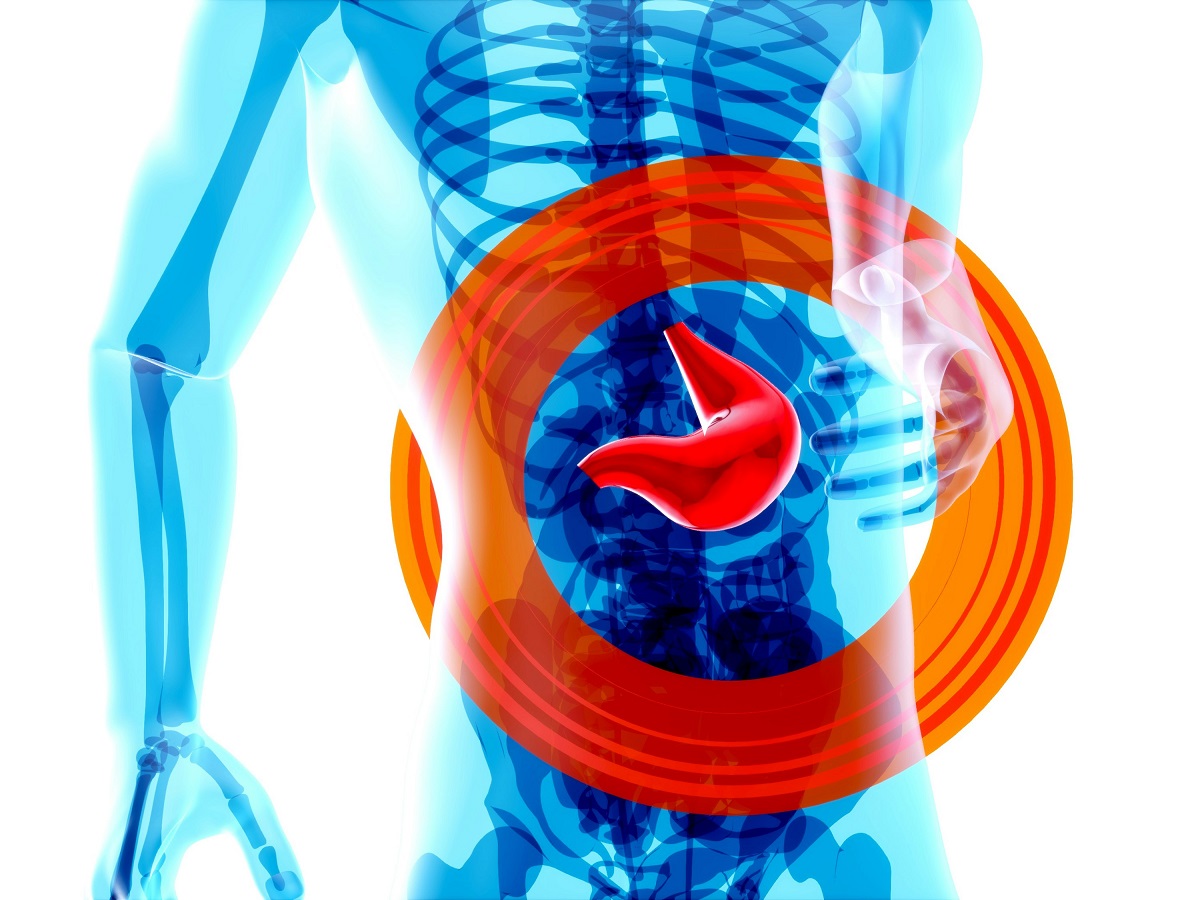The liver plays a crucial role in maintaining overall health, acting as the body’s primary detoxifier and metabolic powerhouse. However, with increasing exposure to toxins and unhealthy lifestyles, liver function can become compromised. In this article, we’ll explore natural and effective ways to improve liver function, helping you support this vital organ and enhance your well-being.
Improving liver function naturally is essential for anyone looking to boost their energy levels, improve digestion, and support overall health. The liver is responsible for detoxifying harmful substances, producing essential proteins, and regulating various metabolic processes. By incorporating specific lifestyle changes and natural remedies, you can optimize health and ensure it functions at its best.
Your liver is a vital organ responsible for filtering toxins, aiding digestion, and storing nutrients. With the demands of modern life, maintaining optimal function is more important than ever. This article will guide you through natural methods to improve health, ensuring that this critical organ continues to perform its essential duties efficiently.
Introduction
1) Importance of Liver Health
The liver is one of the most vital organs in the body, responsible for detoxifying harmful substances, producing essential proteins, and regulating metabolism. Maintaining good liver health is crucial for overall well-being, as it directly impacts digestion, energy levels, and the immune system. Prioritizing health ensures that your body can effectively process nutrients and eliminate toxins.
Liver health is essential for sustaining life and supporting various bodily functions. A healthy liver ensures that toxins are efficiently removed from the bloodstream, preventing potential damage to other organs. When the functions optimally, it enhances your ability to fight infections, manage cholesterol levels, and maintain a balanced hormonal system.
Taking care of your liver is critical to avoiding long-term health issues. Liver-related problems, such as fatty disease or hepatitis, can significantly impair your quality of life. By understanding the importance of liver health and taking proactive steps to protect this vital organ, you can reduce the risk of chronic diseases and enjoy better overall health.
2) Overview of Natural Liver Support
Natural support involves adopting lifestyle changes and dietary habits that promote liver health without the need for medications. This approach emphasizes the consumption of liver-friendly foods, regular physical activity, and avoiding harmful substances like alcohol and processed foods. By supporting your naturally, you can enhance its ability to detoxify the body and improve overall health.
Supporting health naturally is a holistic way to maintain this essential organ’s function. Herbal supplements like milk thistle, turmeric, and dandelion root are known for their liver-protective properties and can be easily incorporated into your routine. These natural remedies, combined with a balanced diet and regular exercise, help optimize liver performance and prevent liver-related issues.
The benefits of natural support extend beyond just improving liver function. When you take steps to nourish your liver naturally, you also support your overall well-being. Natural methods to support the liver, such as eating antioxidant-rich foods, staying hydrated, and managing stress, create a healthier environment for your body to thrive, reducing the risk of liver disease and enhancing your quality of life.
Understanding Liver Function
1) Key Roles of the Liver
- The liver serves as the body’s primary detoxification center, filtering toxins from the blood and converting them into harmless substances that can be excreted. This vital function ensures that harmful chemicals and byproducts are removed, protecting the body from potential damage.
- Another crucial role of the liver is in metabolism. The helps process nutrients absorbed from the digestive tract, converting them into energy and storing essential vitamins and minerals. Additionally, the liver produces bile, which is essential for the digestion and absorption of fats.
- The liver also plays a significant role in regulating blood sugar levels. By storing and releasing glucose as needed, the liver helps maintain energy balance throughout the day. This regulation is critical for overall health and can prevent conditions such as hypoglycemia or hyperglycemia.
2) Common Causes of Liver Damage
- Liver damage can occur due to excessive alcohol consumption, which overwhelms the liver’s ability to process and eliminate toxins. Over time, this can lead to conditions such as fatty, alcoholic hepatitis, or cirrhosis, severely impairing function.
- Another common cause of liver damage is the long-term use of certain medications and exposure to environmental toxins. These substances can accumulate in the liver, leading to inflammation and scarring, which compromise the organ’s ability to perform its essential functions.
- Viral infections, such as hepatitis B and C, are also significant contributors to liver damage. These infections can cause chronic inflammation and lead to serious conditions like liver fibrosis and liver cancer. Early detection and treatment are crucial in preventing the progression of liver disease caused by these viruses.
Dietary Changes for Better Liver Health
1) Foods that Support Liver Function
- Leafy greens like spinach and kale are excellent choices for supporting liver function. These nutrient-dense vegetables are rich in chlorophyll, which helps detoxify the liver by neutralizing harmful chemicals and heavy metals. Including more leafy greens in your diet can boost liver health and enhance its detoxification processes.
- Garlic is another powerful food that supports liver function. It contains sulfur compounds that activate liver enzymes, which help flush out toxins from the body. Garlic also has selenium, a mineral known for its antioxidant properties that further aid in protecting the liver from damage.
- Fatty fish, such as salmon and sardines, are packed with omega-3 fatty acids, which help reduce liver inflammation and fat accumulation. Omega-3s are essential for maintaining liver function, especially for those at risk of liver diseases like fatty liver. Incorporating fatty fish into your diet can significantly improve liver health.
2) Foods to Avoid for Liver Health
- Processed foods, especially those high in trans fats and sugars, can be detrimental to liver health. These foods contribute to fat accumulation in the liver, leading to conditions like non-alcoholic fatty liver disease (NAFLD). To protect your liver, it’s best to limit the intake of processed snacks, baked goods, and sugary beverages.
- Alcohol is one of the primary culprits of liver damage. Excessive alcohol consumption can lead to inflammation, cirrhosis, and other serious conditions. To maintain optimal liver function, it’s crucial to minimize or eliminate alcohol from your diet.
- Fried foods are another category to avoid for liver health. These foods are often high in unhealthy fats, which can strain the liver and lead to fat buildup. Consuming fried foods regularly increases the risk of diseases, so opting for healthier cooking methods like baking or grilling is a better choice for health.
3) Benefits of a Liver-Friendly Diet
- A liver-friendly diet can significantly enhance your overall health and well-being. By focusing on foods that support liver function, you can improve your liver’s ability to detoxify your body, increasing energy levels and better digestion. This diet helps maintain a healthy weight, reducing the risk of liver-related conditions.
- Incorporating liver-friendly foods into your diet can also help prevent diseases. Foods rich in antioxidants, vitamins, and minerals protect the liver from damage and inflammation. A diet that prioritizes these nutrients supports liver regeneration and overall function, ensuring this vital organ operates at its best.
- A liver-friendly diet can promote better skin health and a stronger immune system. Since the plays a key role in detoxification, a healthy liver helps clear toxins from the body more efficiently. This results in clearer skin and a reduced likelihood of infections, showcasing the far-reaching benefits of a liver-supportive diet.
Hydration and Liver Function
1) Importance of Staying Hydrated
- Staying hydrated is essential for maintaining optimal liver function, as water helps the liver perform its critical role in detoxifying the body. Proper hydration ensures that the liver can efficiently filter out toxins and waste products, keeping your system clean and healthy. Without adequate water intake, the liver struggles to process harmful substances, which can lead to a buildup of toxins.
- Hydration is key to supporting liver health, as water plays a vital role in aiding digestion and nutrient absorption. The liver relies on sufficient water levels to produce bile, which is necessary for breaking down fats and eliminating waste. Staying hydrated, helps your liver function smoothly, promoting overall wellness and reducing the risk of liver-related issues.
- Proper hydration is crucial for health because it helps prevent dehydration, which can strain impair its ability to detoxify the body. When you drink enough water, you support the liver’s natural cleansing processes, making it easier for this vital organ to remove toxins and maintain balance in your body. Consistently staying hydrated is a simple yet effective way to keep your functioning at its best.
2) Best Drinks for Liver Health
- Green tea is one of the best drinks for liver health, offering powerful antioxidants that help protect the liver from damage. Rich in catechins, green tea supports the liver’s detoxification processes, reducing the risk of fatty liver disease and improving overall liver function. Incorporating green tea into your daily routine can be a refreshing way to promote a healthier liver.
- Lemon water is another excellent drink for supporting liver health, thanks to its natural detoxifying properties. The citric acid in lemons stimulates bile production, aiding digestion and enhancing the liver’s ability to eliminate toxins. Starting your day with a glass of warm lemon water can help cleanse the liver and boost its efficiency, setting the tone for better overall health.
- Beet juice is highly beneficial for the liver due to its high content of antioxidants and nutrients like betaine. These compounds help protect the liver from oxidative stress and support the detoxification process. Drinking beet juice regularly can aid in reducing inflammation, improving blood flow to the liver, and promoting better liver function, making it a valuable addition to a liver-friendly diet.
Herbal Supplements and Natural Remedies
1) Milk Thistle and Liver Support
Milk thistle is renowned for its liver-protective properties, making it a popular natural remedy for liver health. The active compound in milk thistle, silymarin, has powerful antioxidant and anti-inflammatory effects that help protect liver cells from damage caused by toxins, alcohol, and other harmful substances. Regular supplementation with milk thistle can support liver function and promote regeneration of liver tissue.
In addition to its protective qualities, milk thistle is believed to enhance liver detoxification processes. By stimulating bile production, it aids in the digestion of fats and the elimination of toxins from the body. This makes milk thistle an excellent choice for those looking to improve liver function naturally and support overall digestive health.
Incorporating milk thistle into your daily routine can be a simple yet effective way to maintain a healthy liver. Whether taken as a supplement or consumed as a tea, milk thistle offers a natural approach to protecting and supporting liver health, ensuring that this vital organ continues to function optimally.
2) Dandelion Root Benefits
Dandelion root is a powerful herb known for its ability to support liver health and improve digestion. Rich in vitamins and minerals, dandelion root acts as a natural detoxifier, helping the liver flush out toxins and reduce the burden on this vital organ. Its diuretic properties also promote the removal of excess fluids and waste products from the body, further aiding liver function.
The liver benefits from dandelion root’s ability to stimulate bile production, which is essential for breaking down fats and absorbing fat-soluble vitamins. This process not only supports liver function but also promotes a healthy digestive system. Regular consumption of dandelion root, whether in tea or supplement form, can enhance liver health and overall well-being.
For those seeking a natural way to boost liver health, dandelion root is an excellent choice. Its liver-supporting properties, combined with its ability to promote detoxification, make it a valuable addition to any liver-friendly diet and lifestyle.
3) Turmeric and Its Impact on Liver Health
Turmeric is a well-known spice with potent anti-inflammatory and antioxidant properties that can significantly benefit liver health. The active compound in turmeric, curcumin, has been shown to protect liver cells from damage caused by toxins and oxidative stress. By reducing inflammation in the liver, turmeric supports overall liver function and helps prevent liver-related diseases.
Incorporating turmeric into your diet can enhance liver detoxification processes. Curcumin stimulates the production of bile, which aids in the digestion of fats and the elimination of waste products from the liver. This not only supports liver function but also contributes to better digestion and overall health.
Adding turmeric to your daily routine, whether through cooking, supplements, or turmeric tea, can provide a natural boost to liver health. Its powerful effects on liver detoxification and inflammation make it an essential component of any strategy aimed at improving liver function naturally.
Detoxification and Liver Cleansing
1) Safe Liver Detox Practices
- Liver detoxification is essential for maintaining optimal health, but it’s crucial to approach it safely. Avoid extreme detox diets or over-the-counter cleanses that promise rapid results. Instead, focus on gradual and natural methods, such as incorporating antioxidant-rich foods like berries, green tea, and leafy greens into your daily diet. These foods support the liver’s natural detoxification processes without causing harm.
- Staying hydrated is one of the safest and most effective liver detox practices. Drinking plenty of water aids the liver in flushing out toxins and supports overall organ function. Pairing hydration with regular consumption of detoxifying teas, such as dandelion or milk thistle, can further enhance liver health without the need for harsh detox methods.
- Regular exercise is another safe and effective way to support liver detox. Physical activity improves circulation, which in turn aids the liver in removing toxins from the bloodstream. A balanced routine of cardio and strength training, combined with a healthy diet, ensures that your liver stays in peak condition without the risks associated with extreme detox programs.
2) Myths and Facts about Liver Cleanses
- One common myth about liver cleanses is that they are necessary for removing toxins that have built up over time. However, the fact is that the liver is highly efficient at self-cleansing and doesn’t require drastic detox programs. Simply maintaining a healthy lifestyle with a balanced diet and regular exercise is sufficient for supporting your liver’s natural detoxification processes.
- Another widespread myth about liver cleanses is that they can cure liver diseases or repair extensive liver damage. The reality is that no detox program can reverse serious liver conditions like cirrhosis or hepatitis. For those dealing with liver issues, it’s essential to seek medical advice rather than relying on commercial cleanses that might offer false hope.
- A common fact about liver cleanses is that certain natural remedies, like milk thistle and turmeric, can support liver health. These supplements, when used correctly, can enhance liver function without the risks associated with extreme detox diets. It’s important to focus on long-term, sustainable practices rather than quick-fix solutions that often lack scientific backing.
Exercise and Liver Function
1) How Physical Activity Benefits the Liver
- Physical activity plays a vital role in maintaining liver health by reducing fat buildup, which is a common cause of liver-related issues. Regular exercise helps lower the risk of fatty liver disease by improving insulin sensitivity and promoting weight loss, making it easier the function efficiently.
- Engaging in physical activity also stimulates blood flow, ensuring that the receives the oxygen and nutrients it needs to perform its detoxification duties. This enhanced circulation not only supports liver regeneration but also aids in the removal of toxins from the body, contributing to overall better liver health.
- Exercise helps reduce inflammation in the liver, which is crucial for preventing chronic liver conditions. By lowering levels of inflammatory markers and reducing oxidative stress, regular physical activity can protect the liver from damage and improve its ability to heal and regenerate.
2) Recommended Exercises for Liver Health
- Aerobic exercises like walking, cycling, and swimming are excellent for liver health. These activities help burn excess fat, which is crucial for preventing fatty liver disease. Regular aerobic exercise can significantly improve function by promoting healthy weight management and reducing the risk of liver-related complications.
- Strength training exercises are another effective way to support health. By building muscle mass, strength training helps improve metabolism and insulin sensitivity, both of which are essential for a healthy liver. Incorporating weightlifting or resistance exercises into your routine can provide long-term benefits for function.
- Yoga and stretching exercises are beneficial for reducing stress, which can have a positive impact on health. Chronic stress is known to contribute to liver problems, so practicing yoga can help lower cortisol levels and promote relaxation. This, in turn, supports better liver function and overall well-being.
Lifestyle Changes for a Healthier Liver
1) Reducing Alcohol Consumption
- Reducing alcohol consumption is one of the most effective ways to improve liver health. The liver is responsible for metabolizing alcohol, but excessive intake can overwhelm it, By cutting back on alcohol, you allow your liver to function more efficiently and reduce the risk of conditions like fatty liver disease.
- Consistently consuming alcohol can put a significant strain on your liver, making it harder for the organ to perform its essential functions. Reducing alcohol intake helps lower the liver’s workload, allowing it to repair itself and maintain optimal health. Even moderate reductions in alcohol consumption can have a positive impact on function.
- Protecting your liver should be a priority, especially if you regularly consume alcohol. Reducing alcohol consumption not only supports liver health but also enhances your overall well-being. By making mindful choices about your drinking habits, you can help prevent liver-related issues and promote a healthier, more vibrant life.
2) Managing Stress for Better Liver Function
- Managing stress effectively is crucial for maintaining healthy liver function. Chronic stress can lead to inflammation and negatively impact liver health. By incorporating stress-reduction techniques such as meditation, exercise, and adequate sleep, you can help protect your liver from the harmful effects of prolonged stress.
- Stress has a profound impact on your body, and the liver is no exception. Managing stress is vital for ensuring that your liver functions at its best. When stress levels are controlled, the liver can better detoxify the body and perform its many other critical tasks. Adopting a stress-management routine can significantly benefit your liver health.
- To support this, it’s essential to keep stress in check. Managing stress not only helps maintain emotional well-being but also plays a role in promoting health. Reducing stress can prevent liver inflammation and ensure that remains healthy and capable of performing its vital functions.
3) Avoiding Toxins and Environmental Pollutants
- Avoiding toxins and environmental pollutants is essential for protecting your liver. The liver’s primary role is to filter harmful substances from the body, but excessive exposure to toxins can overwhelm it. By reducing contact with chemicals and pollutants, you can help function more effectively.
- Your liver works tirelessly to detoxify your body, but excessive exposure to toxins can hinder its performance. Avoiding environmental pollutants such as cigarette smoke, pesticides, and harsh chemicals can significantly reduce the liver’s burden, allowing it to operate more efficiently and keep you healthy.
- Protecting your liver from toxins and pollutants is a critical step in maintaining its health. Avoiding exposure to harmful substances not only supports liver function but also reduces the risk of developing liver-related diseases. Making conscious choices to limit toxin exposure can lead to a healthier liver and a healthier you.
Monitoring Liver Health
1) Signs of a Healthy vs. Unhealthy Liver
- A healthy liver is crucial for overall well-being, and recognizing its signs can help you maintain optimal health. Key indicators of a healthy include clear skin, normal energy levels, and proper digestion. Additionally, a well-functioning contributes to balanced hormone levels and efficient nutrient absorption. Regular check-ups and maintaining a balanced diet can support these positive signs.
- Unhealthy liver symptoms can manifest in various ways, such as jaundice, persistent fatigue, or abdominal pain. If you notice yellowing of the skin and eyes, dark urine, or light-colored stools, these could be signs of liver dysfunction. Other indicators include unexplained weight loss, frequent nausea, and swelling in the abdomen or legs. Monitoring these symptoms is essential for maintaining health.
- The liver’s health is reflected in your overall wellness. An unhealthy may cause frequent itching, poor appetite, and a swollen abdomen. Moreover, chronic liver issues can lead to complications like fluid retention and confusion. Regular monitoring and being aware of these signs can help you take proactive steps to address concerns early.
2) When to Seek Medical Advice
- If you experience persistent symptoms like severe abdominal pain, unexplained weight loss, or jaundice, it’s crucial to seek medical advice. These symptoms can indicate significant issues that require professional evaluation. Prompt consultation with a healthcare provider can lead to early diagnosis and effective treatment, preventing further complications.
- Monitoring changes in your health is a vital function. If you notice unusual symptoms such as persistent nausea, chronic fatigue, or changes in stool color, it’s time to consult a healthcare professional. Early intervention can address potential problems before they escalate, ensuring better outcomes and liver health.
- Consulting a doctor is essential if you experience symptoms like persistent itching, dark urine, or significant changes in appetite and energy levels. These could be signs of dysfunction or other underlying conditions. A healthcare provider can perform necessary tests and recommend appropriate treatments to manage and improve health effectively.
Conclusion
Summary of Key Takeaways
In summary, optimizing liver function naturally involves a combination of dietary adjustments, lifestyle changes, and incorporating specific natural remedies. By focusing on a friendly diet, staying hydrated, and including beneficial herbs like milk thistle and turmeric, you can support your liver’s health and efficiency. Additionally, regular exercise and reducing exposure to toxins further enhance liver function. Implementing these strategies can lead to improved overall health and vitality.
Encouragement to Implement Natural Liver Support Strategies
Taking proactive steps to support naturally can significantly impact your overall well-being. Incorporating lifestyle changes such as a balanced diet, regular exercise, and avoiding toxins not only boosts liver function but also enhances your quality of life. By embracing these natural support strategies, you are investing in your long-term health and vitality. Start making these positive changes today for a healthier, more resilient liver.



